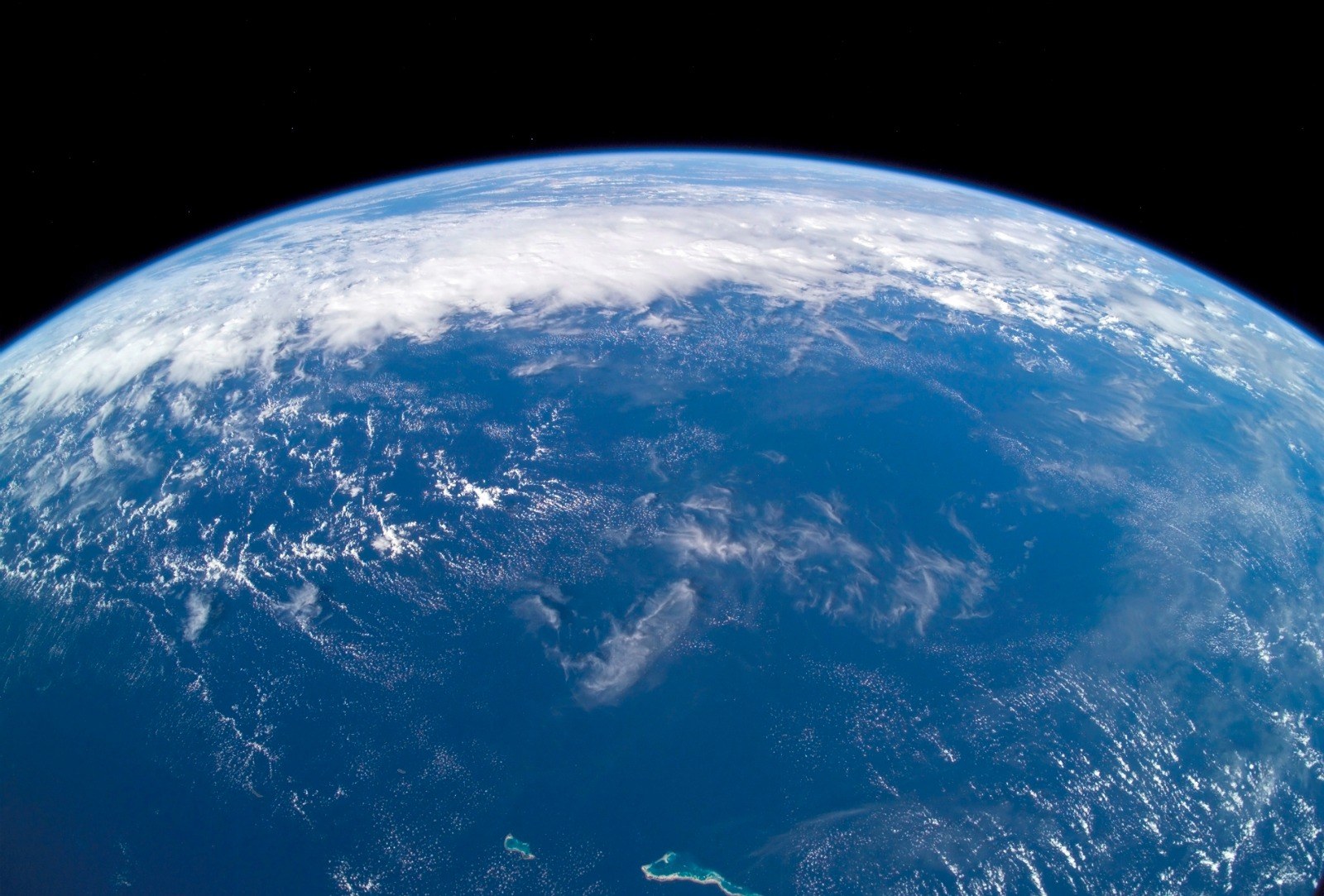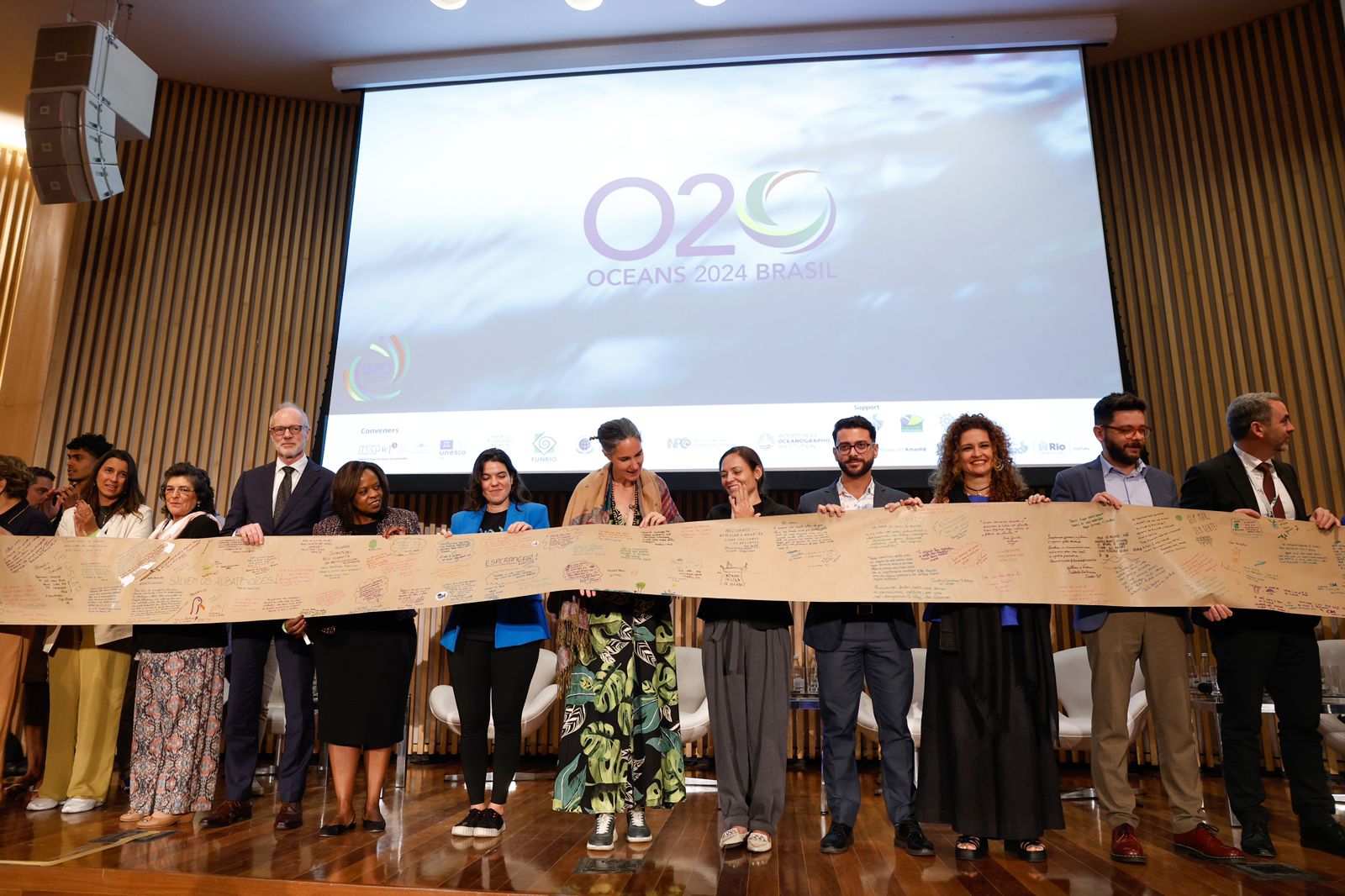First communiqué of Oceans 20 calls for audacity from G20 countries in protecting the seas
The newest G20 Engagement Group places ocean management at the center of global sustainability policies. Inaugural communiqué makes recommendations for sustainable ocean economy, energy transition, food security, conservation, and financing. The document incorporated into the leaders' declaration was prepared with contributions from 6,000 participants.

Por Tiago Santos de Souza / Site G20 Brasil
Oceans 20 (O20), which started in Brasil in 2024, formulated proposals for ocean protection and published its first official communiqué, calling on global leaders to integrate the ocean agenda with climate, trade, and development priorities. The communiqué presents ten priority themes and six practical recommendations to promote a sustainable ocean economy, energy transition, food security, marine conservation, strengthened governance, and increased financing.
The global economy depends heavily on the ocean, with the value estimated at 24 trillion dollars—approximately 4% of global GDP. However, the ecosystem is historically neglected in debates, relegated to a secondary position on the international agenda.
The G20 countries govern almost half of the world's coastline, are home to 60% of the global population, account for 75% of global trade, and 80% of global carbon emissions. Therefore, they have the responsibility to protect marine ecosystems while promoting a sustainable and equitable ocean economy.
O20 is the first permanent Engagement Group in the G20 that recognizes the central role of the oceans in global nature and climate agendas. It arose from efforts inspired by the Indonesian and Indian presidencies at the G20 and became permanent in March 2024 under the Brazilian presidency. This recognition marked a historic step, creating opportunities for economic prosperity, climate action, and security.
"With the presidency of Brasil, the environmental and climate sustainability group has placed the oceans at the center of the global environmental agenda, highlighting their essential role in climate stability and the need to conserve marine biodiversity to restore planetary health," said Ana Paula Prates, director of the Department of Coastal and Oceanic Management of the Ministry of the Environment.
O20 is the first permanent Engagement Group in the G20 that recognizes the central role of the oceans in global nature and climate agendas. It arose from efforts inspired by the Indonesian and Indian presidencies at the G20 and became permanent in March 2024 under the Brazilian presidency. This recognition marked a historic step, creating opportunities for economic prosperity, climate action, and security.
The Group encouraged international cooperation involving governments, the private sector, academia, and civil society. The Ocean Dialogues process engaged more than 6,000 participants from 34 countries, including recommendations that were synthesized in the inaugural O20 communiqué.
Recommendations and priorities
The O20 communiqué presents six practical recommendations divided into ten priority themes, such as:
Promoting a sustainable and equitable ocean economy.
Ambitious and fair energy transition.
Food safety.
Conservation and restoration of ecosystems.
Strengthening ocean governance.
Social Inclusion.
Policy coherence and integration.
Science and innovation.
Public-private partnerships.
Accelerating financing for the oceans.
Towards COP 30

The Communiqué calls on G20 leaders to incorporate the oceans into climate, development, and trade priorities. "As host of the United Nations COP30, Brasil counts on the O20 to build an 'Action Agenda for Climate and Oceans' that will be taken to the next G20 presidencies and COP negotiations," said Ana Paula Prates.
"The progress made since 2022 is remarkable. Now is the time for G20 leaders to turn ambition into concrete action by integrating the O20 recommendations into their deliberations and developing a plan for their implementation under the next G20 presidency in South Africa," concluded Silvia Guzzini of the World Economic Forum.
Ocean victory in the final declaration of the G20 in Brasil
The final declaration of the 2024 G20 Summit brings important victories for the ocean, with commitments made from the claims made by civil society. The text was unanimously approved by the heads of state of the 19 member countries, in addition to the European Union and the African Union. In the declaration, the Summit recognizes the need for ocean preservation and undertakes to act against its degradation. The text recognizes the need for adequate financing, planning and management "to ensure the protection of the marine environment, its conservation and sustainable use of marine resources and biodiversity."
The document calls for an urgent implementation of the Agreement on the Conservation and Sustainable Use of Marine Biodiversity in Areas Beyond National Jurisdiction, "emphasizing the need to strengthen international cooperation, capacity building, technical assistance, and financial support, particularly to developing countries." Leaders also commit to active engagement at the 3rd United Nations Ocean Conference in Nice, France, in 2025.
The text calls for the continuity of Oceans 20 as an engagement group for the ocean, institutionalized by the Brazilian presidency. "We look forward to the continuation of the Oceans 20 initiative in future presidencies," states the document, acknowledging the Group's efforts.
Oceans 20 is coordinated by the UNESCO Chair for Ocean Sustainability in collaboration with the UN Global Compact, World Economic Forum, FUNBIO, INPO, and Woods Hole Oceanographic Institution, as well as several Brazilian and international partners.
See the full Group communiqué {link para o arquivo da pasta}
Information from the O20 Communication Office.
*Translated by PGET-UFSC